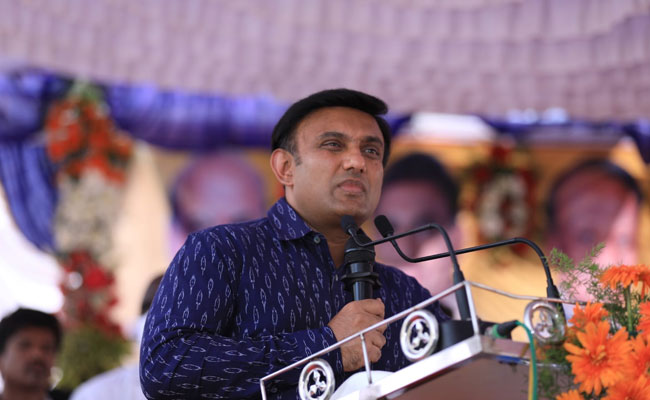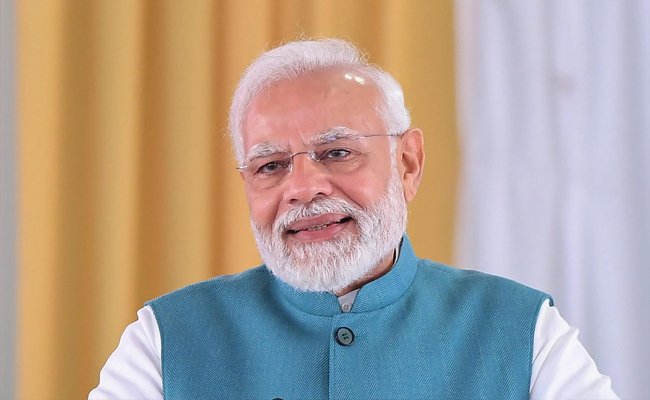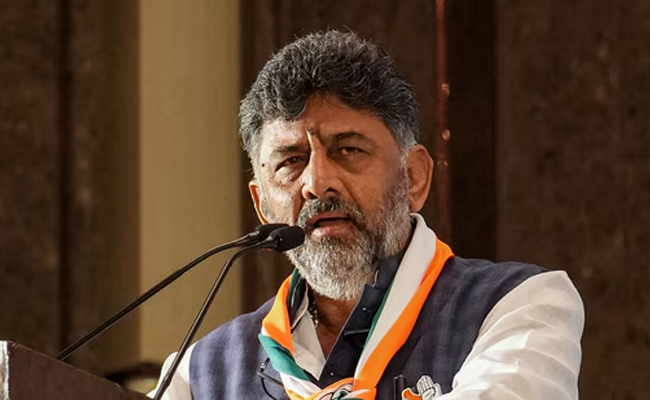Bengaluru: Minister in the outgoing BJP government K Sudhakar on Wednesday questioned former Chief Minister Siddaramaiah whether he can deny the fact that he had no role, ''implicitly or explicitly'', in the move by Congress MLAs to quit the party when the coalition government was in office in 2019.
He raised the issue at a time when Siddaramaiah is in a stiff competition with state Congress president D K Shivakumar to become the CM, after Congress won the Assembly polls by securing 135 seats In a series of tweets, Sudhakar accused the Congress leader of assuring the MLAs that he won't allow the then H D Kumaraswamy-led coalition government to continue even for a single day after 2019 Lok Sabha polls.
Sudhakar was earlier with Congress. He was one among the 17 Congress-JD(S) legislators who quit and defected to BJP that led to the collapse of the coalition government and paved the way for BJP to come to power.
''During the JDS-Congress coalition govt in 2018, whenever MLAs (Congress)went to the then Coordination Committe Chairman Siddaramaiah with their concerns, he used to express his helplessness and say that he has no say in the govt and his constituency/district works itself are stalled,'' Sudhakar claimed..
Further, Siddaramaiah used to assure MLAs to wait till 2019 Lok Sabha polls and come what may he won't allow the then coalition government to continue even for a single day after the 2019 Lok Sabha polls.
Ultimately, some MLAs including him had to inevitably quit Congress and go back to the people in bypolls, to protect the 'karyakartas' and supporters in their constituencies, he said, and asked ''Can Shri Siddaramaiah deny the fact that he had no role, implicitly or explicitly, in this move by Congress MLAs?'' Sudhakar, after defecting to BJP, contested the bypolls on the party ticket and won, and also went on to become Health Minister in the government.
He lost the May 10 Assembly polls from Chikkaballapura seat.
During the JDS-Cong coalition govt in 2018, whenever MLAs went to the then Coordination Committe Chairman Shri Siddaramaiah with their concerns, he used to express his helplessness and say that he has no say in the govt and his constituency/district works itself are stalled.
— Dr Sudhakar K (@mla_sudhakar) May 17, 2023
1/3
Ultimately some of us had to inevitably quit Congress and go back to the people in bypolls, to protect the karyakartas and supporters in our constituencies.
— Dr Sudhakar K (@mla_sudhakar) May 17, 2023
Can Shri Siddaramaiah deny the fact that he had no role, implicitly or explicitly, in this move by Congress MLAs?
3/3
Let the Truth be known. If you read VB and like VB, please be a VB Supporter and Help us deliver the Truth to one and all.
Dharamsala (PTI): The countdown to save his place in the playing XI begins for a beleaguered Shubman Gill, who is likely to get three matches against South Africa to prove his worth before the Indian team management switches to a ‘Plan B’ ahead of the T20 World Cup, starting in six weeks.
As India gear up to play the third T20I against the Proteas on Sunday in sub-10-degree temperatures in the lap of the ice-clad Dhauladhar range, things are suddenly heating up in the Indian dressing room, with the prolonged poor form of skipper Suryakumar Yadav coming under the scanner.
ALSO READ: South Africa level series after de Kock special; Gill, SKY misfire again
Worse, his deputy Shubman Gill, who was pushed into the XI at the expense of a settled Sanju Samson, is not inspiring much confidence.
The South African pace attack featuring Anrich Nortje, Marco Jansen, Lungi Ngidi, Ottniel Baartman and Lutho Sipamla — has shown how to bowl on Indian tracks, and the HPCA Stadium strip, offering extra bounce and some movement off the surface, will certainly keep them interested.
Among all T20 sides, South Africa, in terms of personnel, appears to have the requisite balance to win the trophy in the Indian subcontinent this time. Quinton de Kock’s return, along with the likes of Aiden Markram, Dewald Brevis, Donovan Ferreira, David Miller and all-rounder Jansen, gives their batting an intimidating look.
With only eight games, starting from the third T20I, left before the start of the T20 World Cup title defence, India's under-fire head coach Gautam Gambhir won't be able to afford, two out-of-form top-order batters in the starting line-up.
Being the skipper of the side, Surya will certainly have immunity going into the T20 World Cup despite being completely out of form for the past one year but same can't be said about Gill, who wasn't the original choice as an opener.
Gill's entry into the T20 set-up was a classic case of trying to fix something that ain't broken and things haven't looked good so far.
In this backdrop, Gill would need to bat out of his skin to prove that Ajit Agarkar-led committee wasn't wrong in throwing Samson under the bus for one bad series against England.
The stylish Indian Test and ODI skipper will have to find his T20 game and at least score in two of the three matches if he doesn't want Samson to get his rightful place back or for that matter, find Yashasvi Jaiswal, with a fabulous T20I strike-rate of 165, enter the fray during New Zealand series.
Lack of clarity
==========
While head coach Gambhir is too proud a person to admit but sending Axar Patel as a one drop batter during the second T20I was a "tactical brain fade" from the team's think-tank.
The kind misstep that was taken with Axar's promotion is unlikely to be repeated in the third game where skipper is expected to go back to No.3 where he has got a lot of success in his first few years at the international level.
Similarly, Shivam Dube being sent at number eight due to the shuffling of batting order was another poor call which would need course correction in the next game.
Is there a place for Kuldeep Yadav?
=========================
Kuldeep Yadav is one bowler who has consistently troubled the Proteas batter but in an Indian team where batting till No. 8 is non-negotiable, the left-arm wrist spinner often finds himself getting the rough end of the stick.
At Dharamsala too, he might have to sit out as Kuldeep and Varun Chakravarthy, two non-batters can't be clubbed in the same T20 playing eleven as that would lead to compromise in batting depth.
While Arshdeep hasn't had a good series so far, it will be interesting to find if team management can find a place for Kuldeep in the playing eleven with Hardik Pandya sharing the new ball with Jasprit Bumrah.
The five-match series is currently tied 1-1.
Teams:
India: Suryakumar Yadav (captain), Shubman Gill, Abhishek Sharma, NT Tilak Verma, Axar Patel, Hardik Pandya, Shivam Dube, Jitesh Sharma (wk), Varun Chakravarthy, Arshdeep Singh, Jasprit Bumrah, Sanju Samson (wk), Harshit Rana, Kuldeep Yadav, Washington Sundar.
South Africa: Aiden Markram (captain), Quinton de Kock, Reeza Hendricks, Dewald Brevis, David Miller, Tristan Stubbs, Donovan Ferreira, Marco Jansen, Lutho Sipamla, Ottniel Baartman, Anrich Nortje, Lungi Ngidi, Corbin Bosch, Keshav Maharaj, George Linde.
Match Starts at 7 pm.





